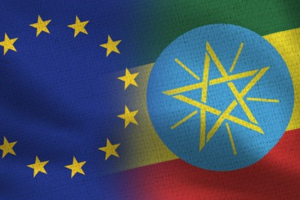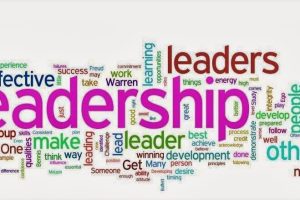
BY ADDISALEM MULAT
Ethiopia is gearing up to embark on the process of selecting participants for its first-ever national dialogue, a significant event aimed at bringing together various stakeholders with diverse backgrounds. The stakeholders are drawn from political parties, civil society organizations, as well as the general public who have an interest in the country’s affairs. This inaugural national dialogue seeks to foster unity, reconciliation, and understanding amongst the Ethiopian population.
Through this platform, individuals from all walks of life will have an opportunity to engage in meaningful discussions aimed at addressing the pressing issues facing the country. Moreover, the national dialogue presents an inclusive platform where all voices can be heard, and differing perspectives can be shared and explored. Ultimately, the goal is to create a more cohesive, united, and stronger Ethiopia. The organizers of this historic event are determined to ensure that the selection process for participants is carried out with utmost care and diligence. It is their goal to make sure that the process is not only fair but also transparent, giving equal opportunities to all interested individuals to come forward and express their desire to be a part of this initiative.
They believe that involving a diverse group of people in this dialogue will enable them to access a broad range of perspectives and ideas, which can help in finding effective solutions for promoting peace, stability, and progress in Ethiopia. After the selection process is completed, the chosen participants will be brought together to engage in constructive dialogue aimed at identifying practical and viable solutions for addressing the challenges facing Ethiopia. This dialogue is expected to be respectful and productive, with all parties encouraged to voice their opinions and contribute to the discussion. It is hoped that this process will enable the participants to develop a deeper understanding of the issues at hand and lead to the formulation of strategies and action plans that can be implemented to help Ethiopia achieve greater peace, stability, and progress.
The national dialogue in Ethiopia is a forum that aims to address the root causes of conflict in the country. It is a platform that brings together various stakeholders to discuss and develop solutions that are inclusive, participatory and sustainable. The forum provides an opportunity for constructive engagement, dialogue and collaboration to promote national reconciliation, foster political reforms and rebuild trust among communities.
Through these initiatives, the national dialogue seeks to impact the political landscape of the country positively. One of the primary objectives of the national dialogue is to provide a safe space for people with differing views and perspectives to engage in constructive and meaningful dialogue. By doing this, the forum aims to create an environment where all voices are heard, respected, and valued. Ethiopia is a diverse country, with more than 80 different ethnic groups. This diversity has sometimes resulted in conflict, which has had a negative impact on the people of Ethiopia. One factor that has contributed to this situation is political divisions and economic imbalances between different ethnic groups. Given this complex situation, it is important to engage a variety of stakeholders in the dialogue process.
The national dialogue is a platform that aims to include all groups and their opinions in order to cultivate inclusivity. This inclusivity is crucial in facilitating dialogue and finding peaceful solutions for all grievances. The national dialogue recognizes the need for participation in governance, which can be achieved through this platform. Through this process, the political landscape of Ethiopia will undergo necessary reforms that are aimed at promoting democracy. National dialogue creates an opportunity for multiple parties to participate in the conversation. It brings together the government and various opposition groups, providing a forum for both parties to discuss their views and find common ground. Moreover, the national dialogue does not only facilitate discussions; it also seeks to implement meaningful political reforms that address the needs of the people.
To ensure that the national dialogue is effective, the government works together with civil society organizations, religious groups, and other stakeholders. These stakeholders have a vested interest in the future of the country and are committed to improving it. By collaborating, they can contribute towards achieving national reconciliation among different ethnic groups. This requires unity and a common vision for the country’s future. The success of any political system relies on the level of inclusiveness and participation it provides for all individuals. This allows equal representation and effective policies to be put in place, which ultimately creates a sustainable and peaceful environment.
An inclusive and participatory political system is essential in creating a fair and just society. When everyone’s views and voices are heard, it ensures that policies are in place for the greater good rather than just benefiting a select few. The focus of the national dialogue in Ethiopia is to reduce tensions between different groups and promote trust among citizens. Through dialogue and mutual understanding, this can be achieved. The national dialogue process in Ethiopia is a crucial step forward in the country’s history, indicating a genuine effort to address the underlying causes of conflicts rather than just their symptoms. By engaging in this process, the country’s leaders are demonstrating a commitment to laying the groundwork for a stable and sustainable future for all Ethiopians, regardless of their backgrounds or circumstances.
In a similar vein, the national dialogue process has the potential to be a defining moment in Ethiopia’s governance, signaling a shift towards more inclusive and collaborative decision-making processes that prioritize the needs and aspirations of the people. If successful, this process could have far-reaching implications for the political and economic development of the country, as it would create an environment that is more conducive to progress and prosperity. In short, the national dialogue process in Ethiopia represents a turning point in the country’s history, providing an opportunity for its leaders and citizens alike to come together to build a brighter future for all. By working together in this way, Ethiopia can overcome its challenges and realize its full potential as a prosperous, stable, and proud nation.
The national dialogue in Ethiopia is a unique opportunity for various parties to come together and negotiate in a transparent and democratic manner. This process is intended to serve the best interests of all citizens, regardless of their social or economic status. By placing people at the center of this approach, it serves to strengthen the relationship between the government and its citizens. This helps to rebuild trust between the two sides and fosters a sense of collective ownership over the political process. The goal of the national dialogue is to create an inclusive and participatory political system in Ethiopia. By bringing together all stakeholders and prioritizing the interests of citizens, this dialogue aims to build a more democratic society where everyone has a say in the future direction of the country. The approach of inclusivity in governance is crucial and plays an important role in contributing to national reconciliation, fostering political reforms, and positively impacting the political landscape of a country.
By providing representation to all groups, views, and opinions, it creates a sense of inclusivity which is necessary for peaceful resolution and dialogue while reducing tensions and division. When there is an inclusive approach, all voices are heard, and diverse perspectives are valued, leading to a more comprehensive decision-making process that represents the needs of the entire society. An inclusive approach to governance is a vital aspect of promoting national reconciliation, political reforms, stability, security, and social cohesion within a country. It is essential to ensure that all voices are heard, and no one is left behind in decision-making processes. Ethiopia’s national dialogue is a positive step towards a brighter, more peaceful future for all its citizens, showing that inclusivity in governance can lead to progress and prosperity for a nation.
To address these problems, the national dialogue process was initiated. This process involves bringing together different stakeholders who have different perspectives and ideas. The reason for this is to create a platform that is inclusive, which is valuable in achieving peaceful resolutions of grievances. Through this process, Ethiopia hopes to promote dialogue and discussion among various groups. Doing so will help to understand one another’s views, develop trust, and build consensus on how to move forward as a nation.
At a press briefing held, the Ethiopian National Dialogue Commission (NDC) Chief Commissioner Prof. Mesfin Araya said it is planned to complete the first round of participants’ selection within two weeks. The selection will be conducted in other regions soon. The Chief Commissioner further highlighted that the selection of participants will be done in every district in the states and the city administration. Prime attention has been given to ensure the inclusivity of the dialogue in which all sectors of the society will be represented in the process.
“Some 50 people from each district will be represented and those representatives are gathered and after the selection of participants in the zone level, those who will represent each state and take part in the consultation forum and agenda setting will be selected.” Mesfin pointed out that the commission mainly directs the selection of the participants. Collaborators who will assist in the mission have been identified.
THE ETHIOPIAN HERALD WEDNESDAY 24 MAY 2023





